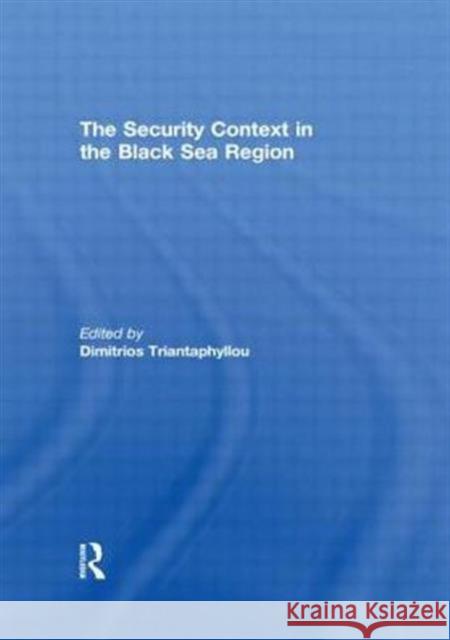The Security Context in the Black Sea Region » książka
The Security Context in the Black Sea Region
ISBN-13: 9780415560887 / Angielski / Twarda / 2010 / 168 str.
The Security Context in the Black Sea Region
ISBN-13: 9780415560887 / Angielski / Twarda / 2010 / 168 str.
(netto: 699,68 VAT: 5%)
Najniższa cena z 30 dni: 705,23
ok. 22 dni roboczych.
Darmowa dostawa!
This book on the security context in the Black Sea region is a timely endeavour and substantive contribution to understanding the state of play in the region and its linkages to the rest of the world. With contributions from analysts from Europe, the United States, Russia, Ukraine and Turkey, the book provides a holistic perspective. Post-Cold War developments have increased interest in the Black Sea region and the role of the regional and extra-regional actors in its security issues: this volume examines the position of the United States; NATO's involvement; the EU's engagement; Russia and Turkey's aspirations alongside the policies of the other states in the region as they seek a role for themselves. It illustrates and investigates key concerns such as security, energy and energy security, regionalism and good governance; and questions why a cooperative security framework (or other regional schemes which could accommodate the needs of all stakeholders) has to date never become a reality. This book adds to the growing body of research on the region, presenting the facts of the current situation and asking what can be done in the Black Sea region for it to survive given its precarious security environment. This book was published as a special issue of Southeast European and Black Sea Studies.
This book on the security context in the Black Sea region is a timely endeavour and substantive contribution to understanding the state of play in the region and its linkages to the rest of the world. The book provides a holistic perspective as it includes the thoughts of analysts from Europe, the United States, Russia, Ukraine and Turkey. Post-Cold War developments have contributed to raising the interest on the Black Sea region and within this emerging context it is interesting to note the emerging changes in the region and in the role of the regional and extra-regional actors. To this end, it pays attention to the position of the United States, NATO’s involvement, the EU’s engagement, Russia and Turkey’s aspirations while it also examines the policies of the other states of the region as they seek a role for themselves. Overall, this book has the primary objective to illustrate and bring to the surface key concerns such as security, energy and energy security, regionalism and good governance that are of a horizontal nature and question why a cooperative security framework or other regional schemes that could accommodate the needs of all stakeholders remains to date an illusion. In this regard, the contributions of this book attempt to present the realities of the region and what it could conceivably need to do to survive the precarious nature of its security environment, thus enriching the small but growing body of research of the region.
This book was published as a special issue of Southeast European and Black Sea Studies.











